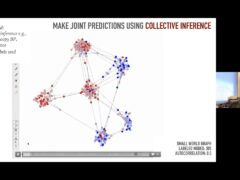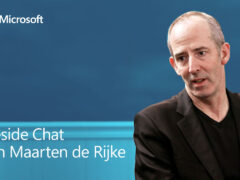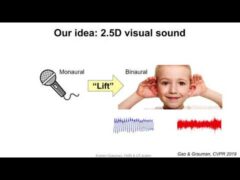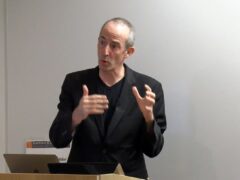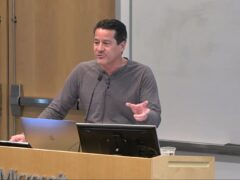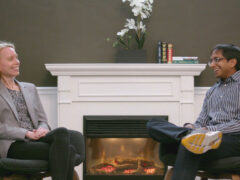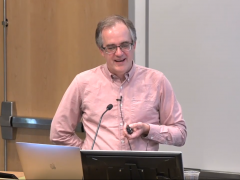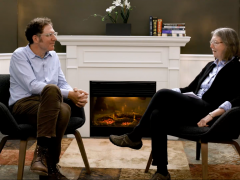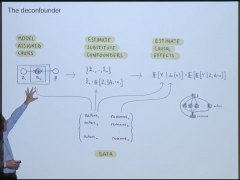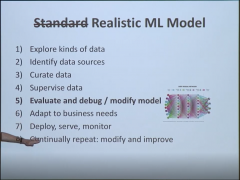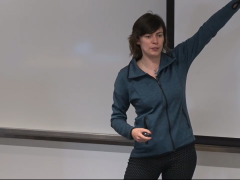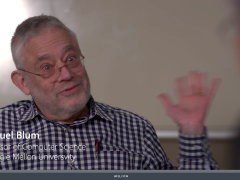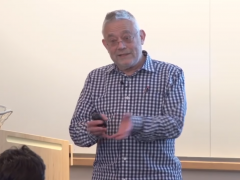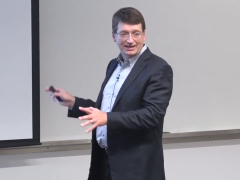The Blessings of Multiple Causes
- David Blei | Columbia University
Causal inference from observational data is a vital problem, but it comes with strong assumptions. Most methods require that we observe all confounders, variables that affect both the causal variables and the outcome variables. But whether we have observed all confounders is a famously untestable assumption. We describe the deconfounder, a way to do causal inference with weaker assumptions than the classical methods require.
How does the deconfounder work? While traditional causal methods measure the effect of a single cause on an outcome, many modern scientific studies involve multiple causes, different variables whose effects are simultaneously of interest. The deconfounder uses the correlation among multiple causes as evidence for unobserved confounders, combining unsupervised machine learning and predictive model checking to perform causal inference. We demonstrate the deconfounder on real-world data and simulation studies, and describe the theoretical requirements for the deconfounder to provide unbiased causal estimates.
This is joint work with Yixin Wang.
[PUBLICATION] (opens in new tab)
Speaker Bios
David Blei is a Professor of Statistics and Computer Science at Columbia University. His research is in statistical machine learning, involving probabilistic topic models, Bayesian nonparametric methods, and approximate posterior inference. He works on a variety of applications, including text, images, music, social networks, user behavior, and scientific data. David earned his Bachelor’s degree in Computer Science and Mathematics from Brown University (1997) and his PhD in Computer Science from the University of California, Berkeley (2004). Before arriving to Columbia, he was an Associate Professor of Computer Science at Princeton University. He has received several awards for his research, including a Sloan Fellowship (2010), Office of Naval Research Young Investigator Award (2011), Presidential Early Career Award for Scientists and Engineers (2011), Blavatnik Faculty Award (2013), and ACM-Infosys Foundation Award (2013).
Taille: MSR AI Distinguished Lectures and Fireside Chats
-
AI and Gaming Research Summit 2021 - Fireside chat with Peter Lee and Kareem Choudhry
- Peter Lee,
- Kareem Choudhry
-
Frontiers in Machine Learning: Fireside Chat
- Christopher Bishop,
- Peter Lee
-
Learning over sets, subgraphs, and streams: How to accurately incorporate graph context
- Jennifer Neville,
- Paul Bennett,
- Debadeepta Dey
-
Fireside Chat with Aaron Courville
- Aaron Courville,
- Susan Dumais
-
Fireside Chat with Maarten de Rijke
- Maarten de Rijke,
- Susan Dumais
-
First-person Perception and Interaction
- Eric Horvitz,
- Kristen Grauman
-
Fireside Chat with Anca Dragan
- Anca Dragan and Eric Horvitz
-
Conversations Based on Search Engine Result Pages
- Maarten de Rijke
-
Fireside Chat with Michael Kearns
- Michael Kearns,
- Eric Horvitz
-
The Ethical Algorithm
- Michael Kearns
-
Fireside Chat with Stefanie Jegelka
- Alekh Agarwal,
- Stefanie Jegelka
-
Fireside Chat with Peter Stone
- Peter Stone,
- Eric Horvitz
-
-
Fireside Chat with Christopher Manning
- Susan Dumais,
- Christopher Manning
-
Building Neural Network Models That Can Reason
- Christopher Manning
-
Fireside Chat with David Blei
- David Blei,
- Susan Dumais
-
The Blessings of Multiple Causes
- David Blei
-
As We May Program
- Peter Norvig
-
Fireside Chat with Peter Norvig
- Eric Horvitz,
- Peter Norvig
-
-
Fireside Chat with Manuel Blum
- Eric Horvitz,
- Manuel Blum
-
-
Fireside Chat with Dario Amodei
- Dario Amodei,
- Eric Horvitz
-
Fireside Chat with Tuomas Sandholm
- Eric Horvitz,
- Tuomas Sandholm
-
Super-Human AI for Strategic Reasoning
- Tuomas Sandholm



